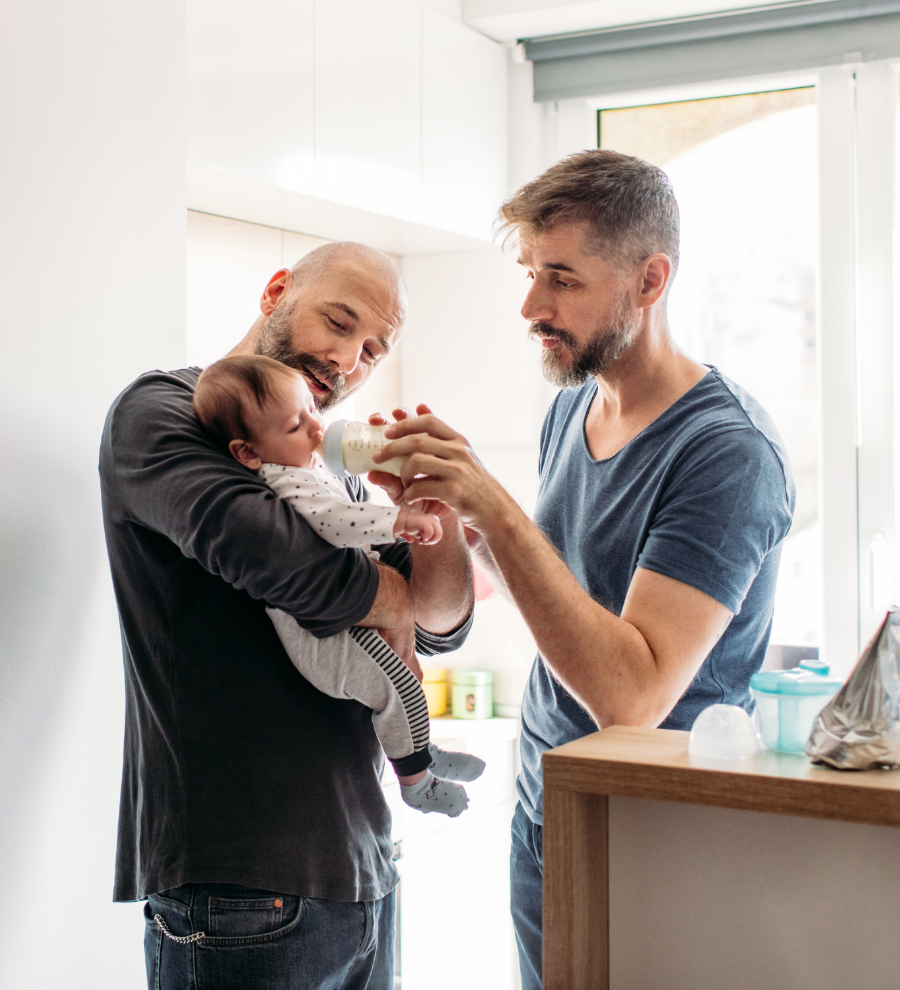Dear Acenda,
My husband and I adopted our daughter 6 years ago, and as she's nearing her 7th birthday, we're worried on how to approach the topic of adoption. She's beginning the first grade so she will likely realize that having two dads may not be as common and children tend not to have a filter. We just want to do what's best for her and make sure she understands that although we're not related by blood, she is our family. When is the right time to sit her down and talk about her adoption? How do we even begin that conversation?
Sincerely,
Dads in Distress
Dear Dads in Distress,
There is no one-size-fits-all template for talking to your child about their adoption. Each family and circumstance is unique, but going into the conversation with your daughter prepared and confident is a great first step.
A child who is learning about being adopted will gradually learn more as they continue to grow, as you may have noticed. Discussing adoption can help build trust and give them a chance to ask questions and express how they are feeling. "Conversations about being adopted should begin as early as possible. These conversations should be truthful, but age-appropriate and allow for your daughter to ask questions and share her feelings," explains Lisa Haya, LCSW, Vice President of Child & Family Services. "The goal is for your daughter to find it to be a comfortable experience where she can approach you in the future with additional questions." Open, honest dialogue is key! November is National Adoption Month, making it the perfect time to have this conversation.
There are many ways to start discussions about your child's adoption. Here are a few examples:
- Begin with parts of your child's life story. Perhaps begin with talking about the history of their home country or talk about the day you brought them into your home.
- You can open the conversation by talking about different types of families. For example, single parent, two parent, same sex parents, etc.
- Create a book about their life that you can continuously add to. This is a creative, interactive way to explain the adoption process to your child.
- There are many adoption books for children that can help with this. *Twenty things adopted kids wish their adoptive parents knew* by Sherrie Elderidge, is a great book. www.Adoptivefamilies.com is another helpful resource for your family’s adoptive journey.
- Begin talking about difficult details your child possibly went through such as abuse, trauma, and substance abuse. Don't sweep these issues under the rug, talking them out is a great way to heal.
- Explain to your child that because they are not with their birth parents, it was not their fault nor were they a bad child.

Four pieces of advice on what NOT to do/say to your child about their adoption:
- Mention how different they look from the rest of the family.
- Don't try to hide the fact that your child is adopted.
- Don't wait to tell them they are adopted until they are older.
- Don't give them special treatment compared to your other children.
Adoption is a great way to build your family and have the opportunity to raise a child. Adoption also provides a loving and caring home to children who need them!
If you feel as though you're still struggling, Acenda offers family counseling and therapy services to help your through this experience.
Call our main number at 844-4-ACENDA (844-422-3632 X9500) for more information or to schedule an appointment.
Sources:
https://somuchbetterwithage.com/10-things-not-to-say-to-your-adopted-children/
https://adoptionnetwork.com/adoption-myths-facts/domestic-us-statistics/
https://adoptionswithlove.org/birth-parents/adopted-child-problems#:~:text=As adopted children mature and,also stir feelings of uncertainty.